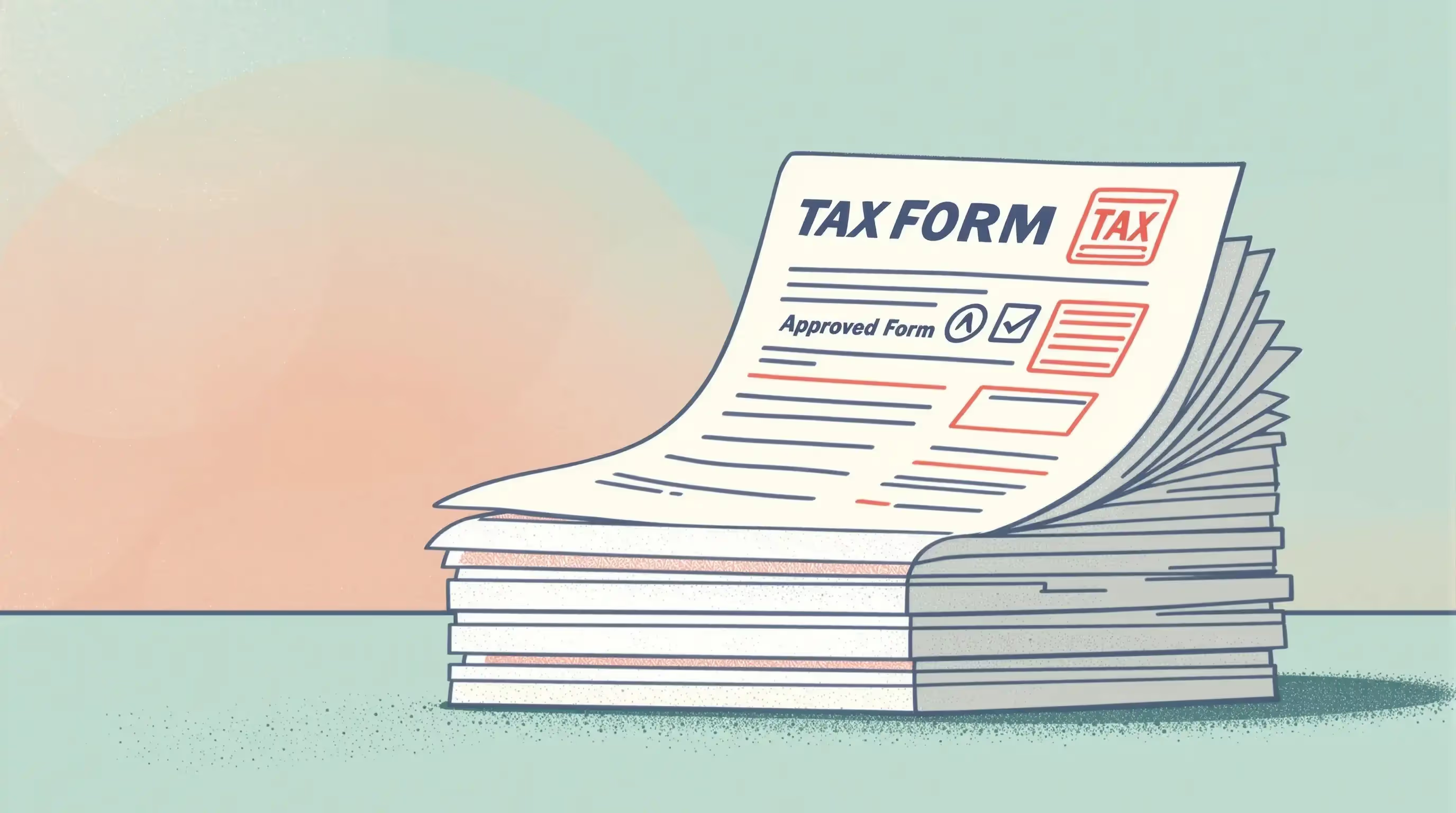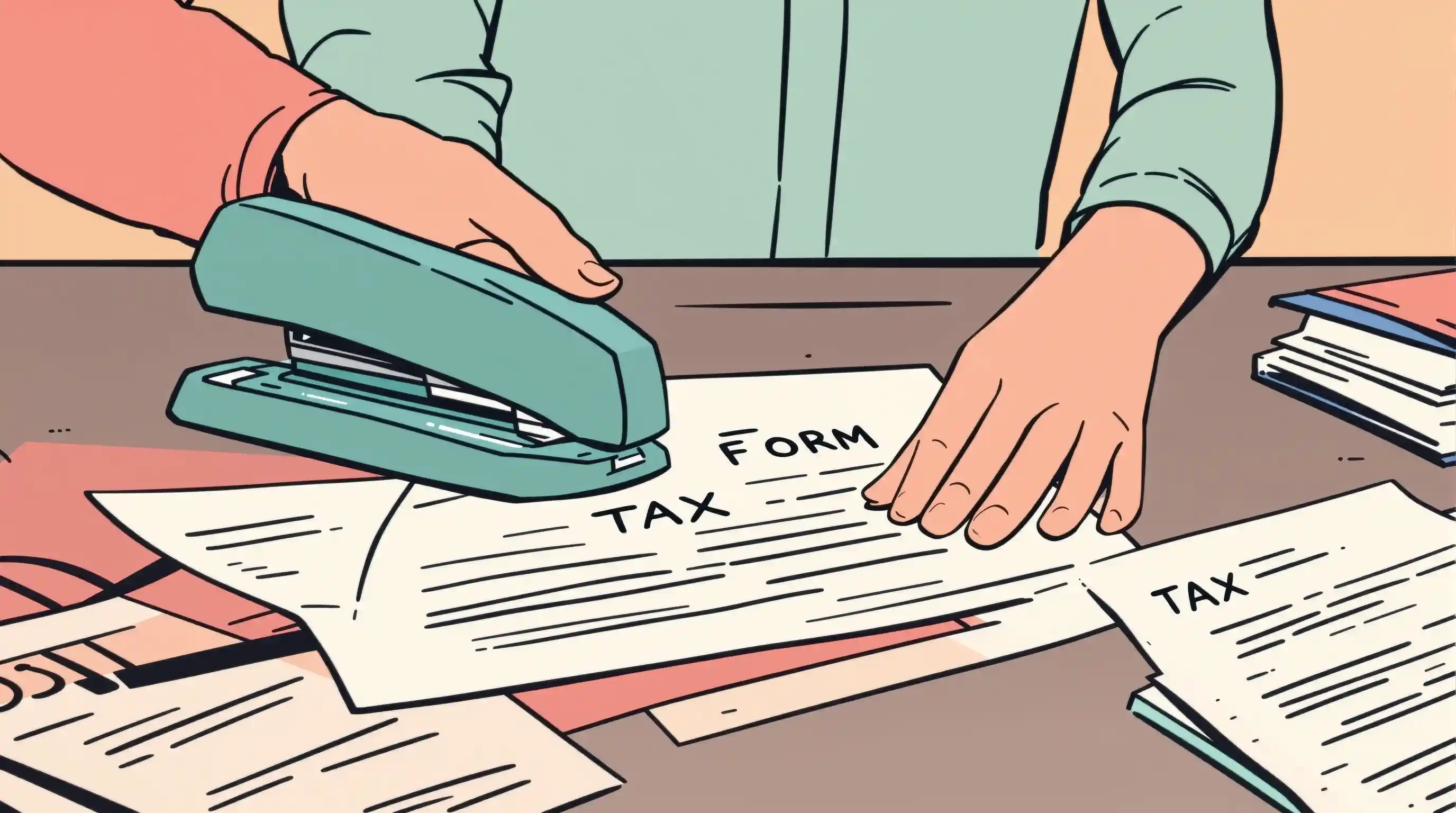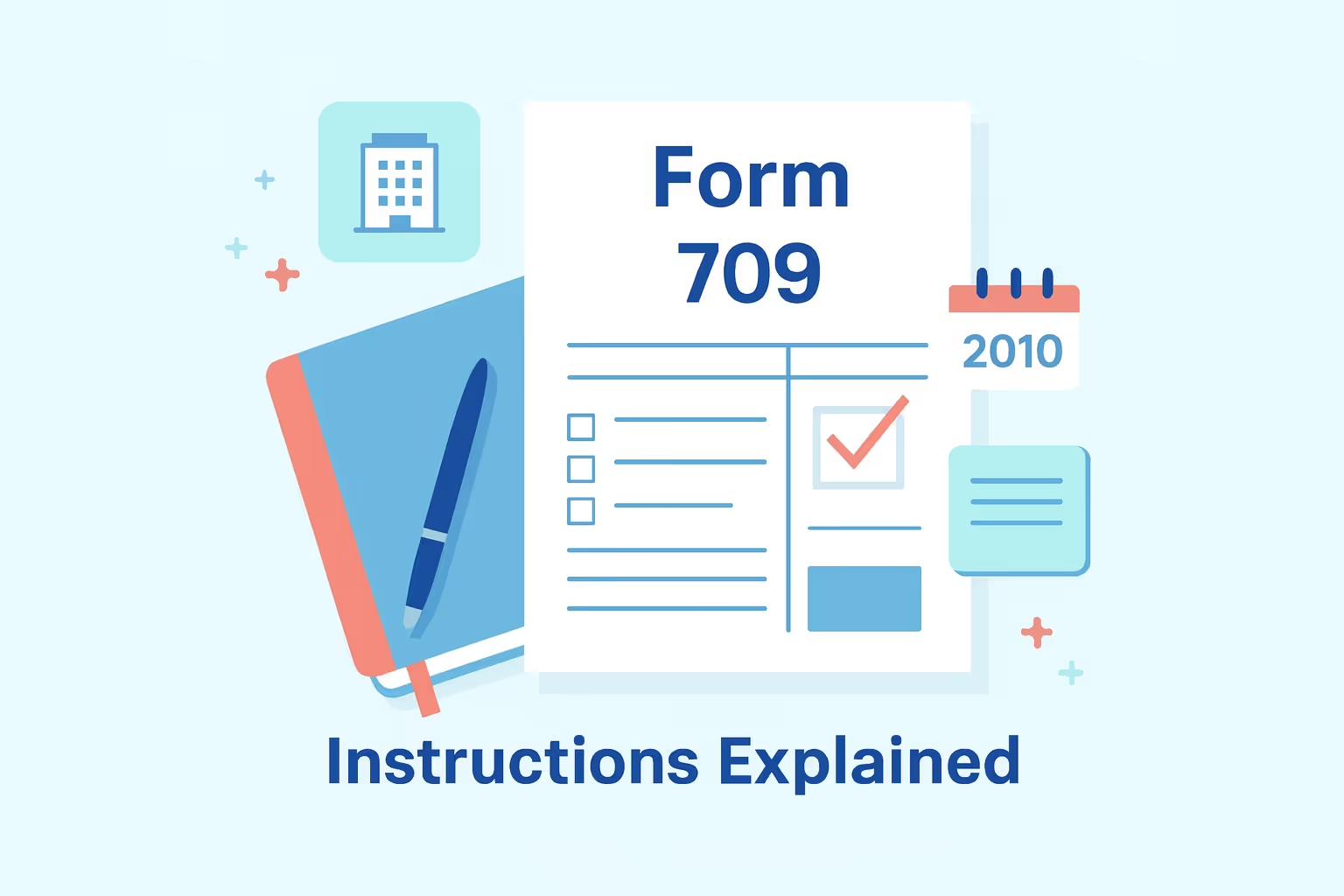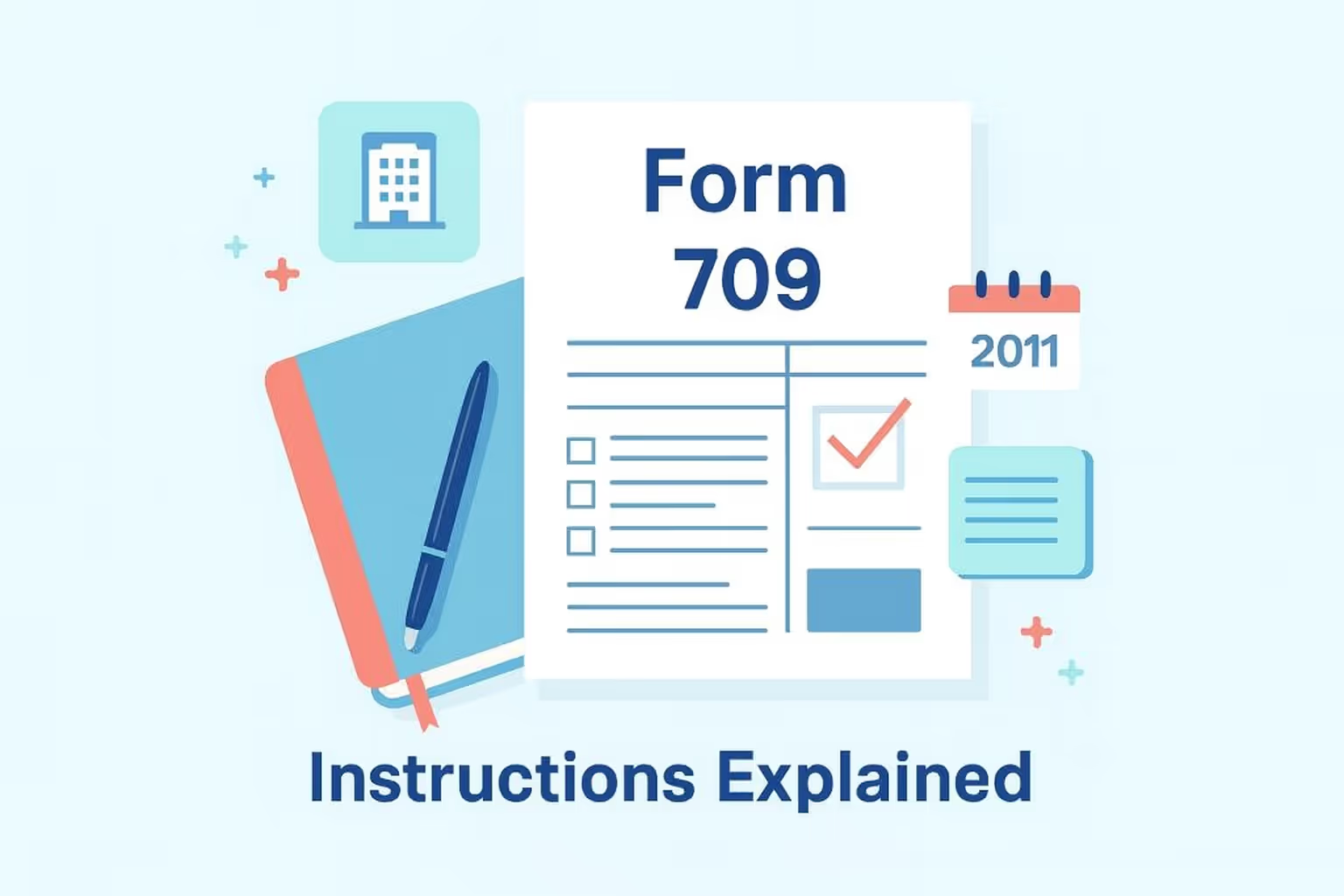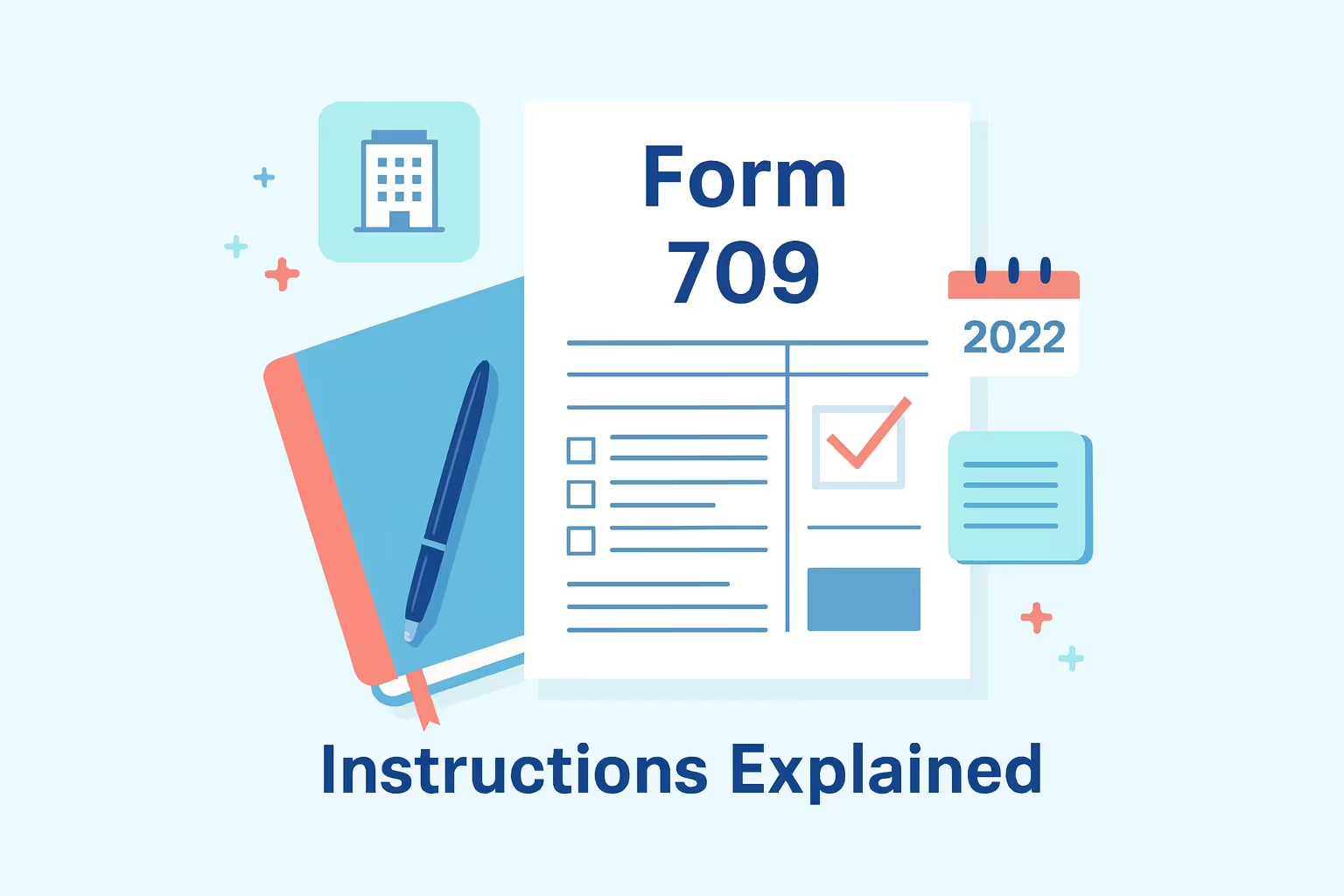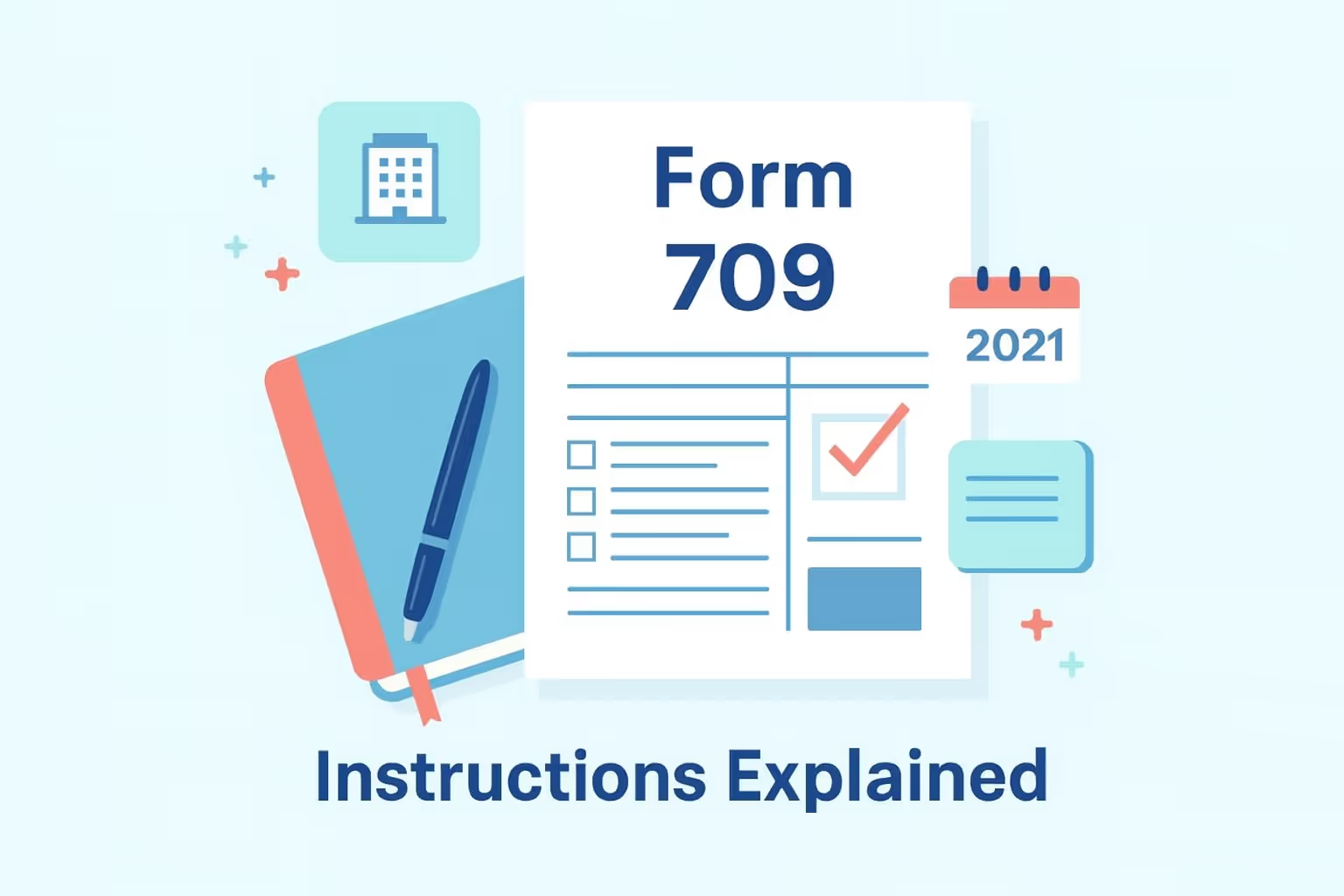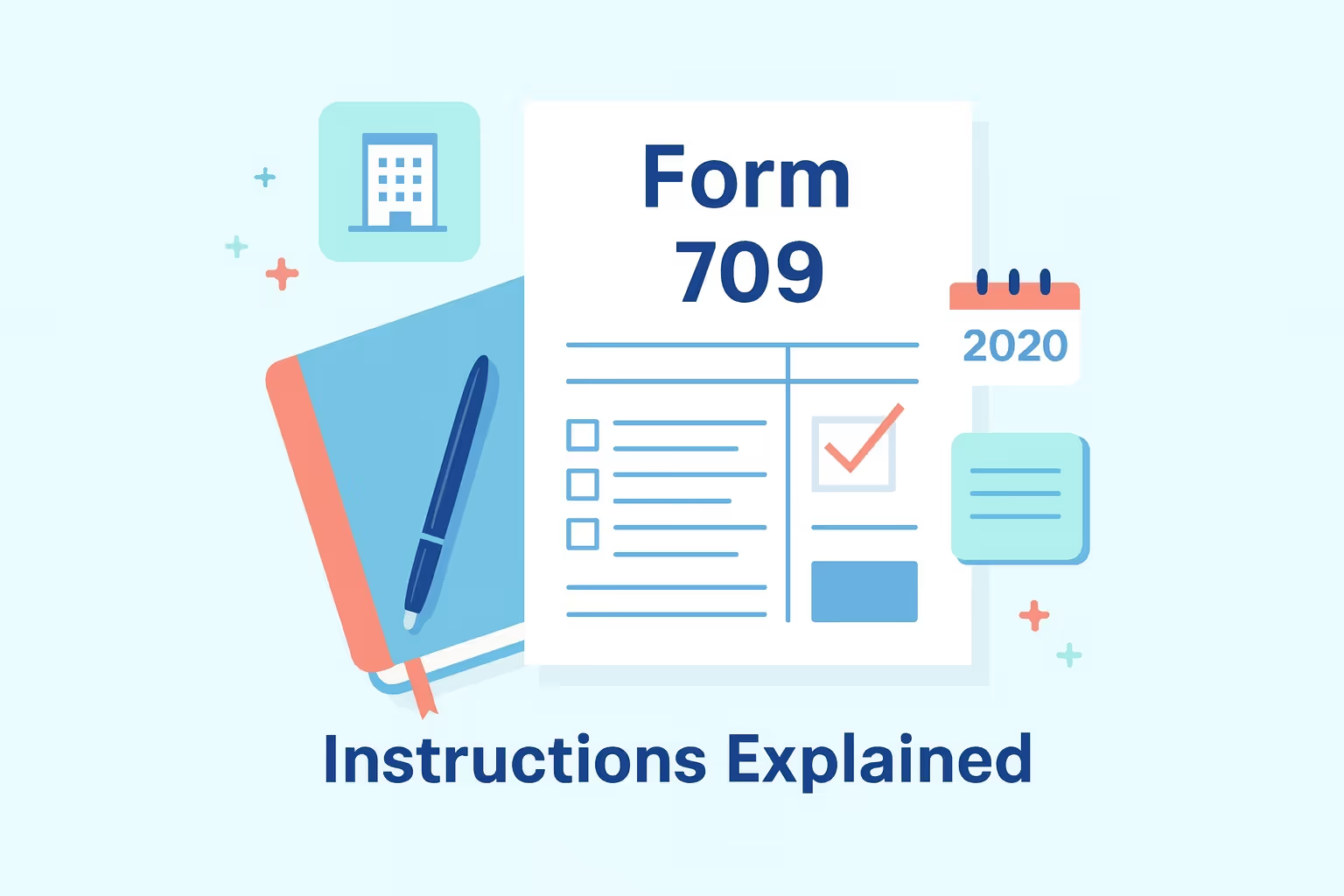
What IRS Form 709 (2019) Is For
IRS Form 709 is the United States Gift and Generation-Skipping Transfer Tax Return used to report gifts that exceed the annual gift tax exclusion and certain generation-skipping transfers made during the 2019 tax year. The form ensures proper reporting of taxable gifts, split gifts between spouses, and the use of the lifetime exemption for gift taxes. You must file a federal gift tax return if you transferred property to someone without equal value in return, even for a brief period, and the gift exceeds the annual exclusion amount.
When You’d Use Form 709 for 2019 (Late or Amended Filing)
Taxpayers use Form 709 to report gifts, elect gift splitting, or claim a deceased spouse's unused exclusion. A late or amended filing may be required if you discover unreported lifetime gifts, receive an IRS notice about unfiled gift and GST taxes, or want to start the statute of limitations for properly disclosed transfers. Filing even after the due date helps avoid indefinite IRS review and ensures accurate taxable gift reconciliation for income tax purposes.
Key Rules or Details for 2019
- Annual exclusion amount: For 2019, the annual gift tax exclusion was $15,000 per recipient and $155,000 for gifts to a non-citizen spouse. These limits define which gifts are considered tax-free for federal gift tax purposes.
- Lifetime gift tax exemption: The lifetime exemption for 2019 was $11.4 million, allowing donors to make large transfers without immediate tax liability. This exemption also affects the estate tax exemption.
- Generation-skipping transfer tax: The generation-skipping transfer tax exemption for 2019 was $11.4 million, and the top rate is 40 percent applied to GST taxes.
- Gift splitting: Married couples could elect gift splitting using a joint gift tax return, doubling the annual exclusion for each donee. Both spouses must consent to the donor spouse's return for the election to apply.
- Valuation rules: All property transferred must be reported at its fair market value as of the gift date. Gifts of future or partial interests are not eligible for the annual exclusion.
- Exempt transfers: Under the Internal Revenue Code, direct tuition costs paid to a qualified educational organization and payments to a donee’s insurance company are excluded for gift tax purposes.
Browse more tax form instructions and filing guides in our Forms Hub.
Step-by-Step (High Level)
Step 1: Gather Your Records
Collect documentation of all 2019 gifts, including appraisals, fair market value reports, and statements for any charitable gift or qualified tuition plan payment. Ensure these align with the Internal Revenue Service recordkeeping standards.
Step 2: Complete the Correct Tax Form
To ensure proper tax computation, use the 2019 individual gift tax return version, not a later edition. Include all schedules showing property transferred, lifetime gifts, and generation-skipping transfers.
Step 3: Attach Supporting Documentation
Attach valuations for property transferred, trust agreements, or statements from exempt organizations. Include proof of direct tuition payments or qualified tuition program contributions for excluded transfers subject to verification.
Step 4: File at the Correct Address
Mail original returns to the IRS Kansas City Service Center and amended ones to the Florence, Kentucky location. Follow IRS mailing instructions for federal gift tax returns to prevent processing delays.
Step 5: Keep Copies for Your Records
Retain copies of all filed documents and supporting evidence. Maintaining these ensures accuracy in future taxable gift reconciliation and supports any estate tax imposed or adjustments during estate administration.
Learn more about federal tax filing through our IRS Form Help Center.
Common Mistakes and How to Avoid Them
- Using the wrong form year: File the 2019 Form 709 to ensure accurate computation of gift tax annual exclusion and lifetime exemption amounts as specified for that tax year.
- Incomplete disclosures: Provide detailed descriptions and fair market value data for every gift to start the statute of limitations period on assessment.
- Missing spousal consent: When electing gift splitting, ensure the non-donor spouse signs the joint gift tax return to validate the election and prevent disallowance by the Internal Revenue Service.
- Incorrect valuation method: When computing gift tax liability, always use the fair market value on the date of the gift, not the purchase price or later appraised values.
- Overlooking generation-skipping transfers: Report direct or indirect skips to grandchildren under Schedule A and Schedule D to avoid GST tax miscalculations.
- Failing to report excluded payments: Even if direct payments for tuition or medical expenses qualify as tax-free gifts, it is important to retain receipts to substantiate their exclusion from transfer tax reporting.
Learn more about how to avoid business tax problems in our guide on How to File and Avoid Penalties.
What Happens After You File
Once you file, the Internal Revenue Service reviews the gift and GST taxes for accuracy. Properly disclosed gifts begin the three-year statute of limitations, protecting future estate tax reconciliation. If tax liability arises, payment can accompany the return or be arranged through IRS payment options. Taxpayers may receive notices requesting additional documentation if questions arise during the tax computation or examination.
FAQs
Is there a penalty for filing IRS Form 709 (2019) late if no gift tax liability exists?
The IRS does not impose a late filing penalty if no tax is owed. However, filing even without liability helps start the statute of limitations and provides clear recordkeeping for lifetime gift tax exemption tracking.
How does the annual gift tax exclusion affect 2019 transfers?
For 2019, the annual exclusion amount was $15,000 per recipient. Gifts below this limit are tax-free and do not require you to file gift tax returns unless you elect gift splitting or transfer future interests.
How do generation-skipping transfer rules apply to my 2019 gifts?
If you made direct or indirect transfers to grandchildren or other skip individuals, report them under Schedule D of Form 709. The generation-skipping transfer tax exemption for 2019 was $11.4 million.
Can I claim a deceased spouse's unused exclusion on Form 709?
Yes, you may apply a deceased spouse's unused exclusion when computing the gift tax for 2019. This election must correspond to a properly filed federal estate tax return showing the DSUE amount.
How are gift and GST tax liabilities calculated under the 2019 rules?
Gift and GST tax liability are determined using the 2019 tax computation tables and credit limits. The Internal Revenue Code applies a unified credit that combines lifetime gift and estate tax exemptions.
What fair market value standard should I use for 2019 gifts?
Use the property's fair market value transferred at the gift date. Under normal market conditions, this value must reflect what a willing buyer and seller agree to.
How do total taxable gifts affect my future estate tax?
Total taxable gifts made during your lifetime reduce your remaining lifetime exemption. The Internal Revenue Service uses total taxable gifts to compute the estate tax imposed at death under unified transfer tax rules.








